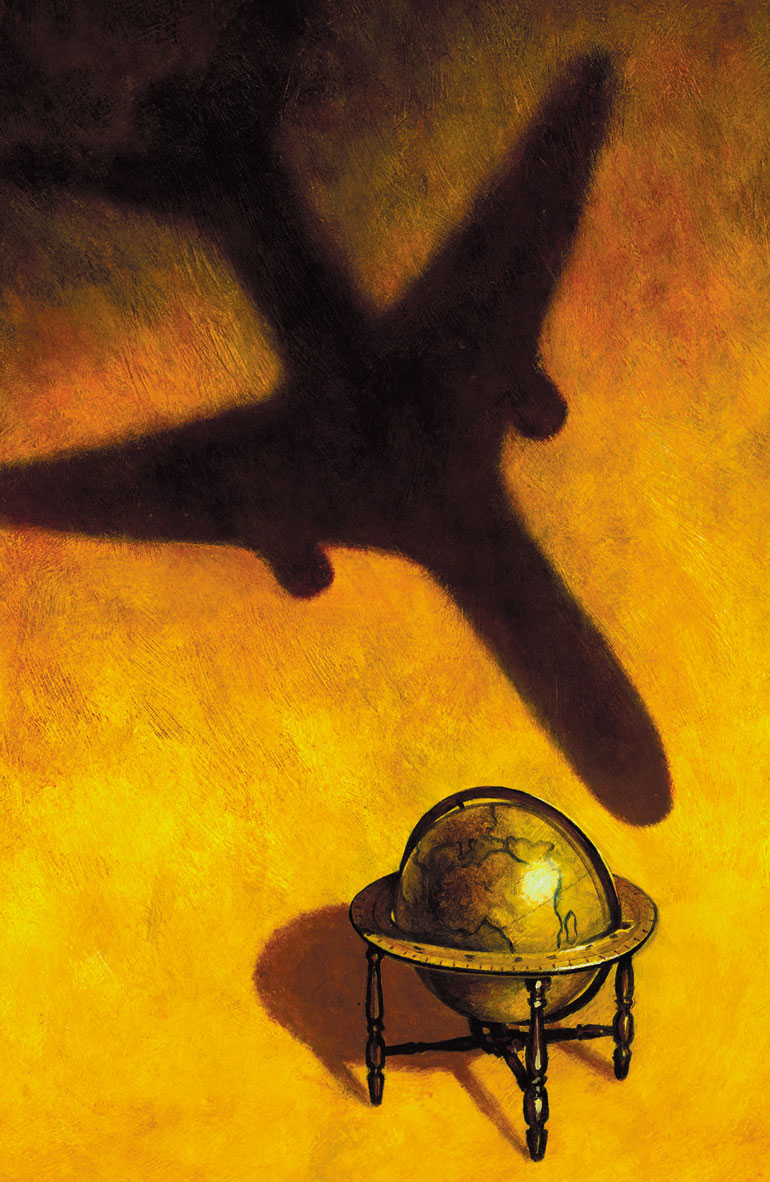Many years ago, shortly after 9/11, a friend confided to me that, as a result of the World Trade Center and Pentagon catastrophes, she had found her self benumbed, distracted, tired, and assigning less importance to things that had always given her pleasure. “I’ve always loved to cook,” she reflected, “but now we simply eat out, or I cook rudimentary meals as a practical necessity.”
I immediately identified with her feelings. “Everything seems devalued,” I remarked, and then I considered how this had also been true for me, at the time. Even taking a walk in the Maine woods had become less a means of enjoying nature than of evading recurrent media images and ubiquitous talk about the tragedy.
For me, this emotional funk was, to say the least, untimely. For a year, my adoptive son, Alyosha, and I had been working toward a second adoption. Alyosha was 16 then, and, like a candle waxing in intensity, he had steadily warmed to the idea of having a little brother.
Shortly before the incidents, I had received word of a six-year-old boy in Eastern Europe, and suddenly the die was cast. Our common future found focus, and both of our lives inclined toward welcoming new life into our home.
And then, September 11. Everything became diminished: what to eat, what to wear, what color roofing to choose for our new garage. What could these things possibly matter in light of a nation’s suffering?
I tried to think about the adoption, but it was a no-go. A much-anticipated event had become an abstraction, in a league with fretting over the vacuuming while the rubble in Manhattan was still smoldering. In my mind, I retreated from what I wanted and came to a more comforting focus on what I already had. Like the wanderer who moves closer to his campfire when the night grows dark and cold, I pulled closer to Alyosha.
Curiously — for like most teenagers, my son spent a great deal of time defining his independence — he allowed this. We ate out together, discussing the books he was reading in school, and I even sneaked in a furtive hug, as if he were still the waifish seven-year-old I had brought home from a Russian orphanage.
One night, we heard news reports of the many ways people were pitching in to assist those affected by the disaster. Money, clothing, food, and labor were being donated.
The underlying philosophy of the helping hand is that human charity, if of sufficient magnitude, can take something wrong and make it right. If you give money to the poor, you make them less poor; if you give food to the hungry, you sate their hunger.
But what on earth can you do for the dead? Not the physical dead, mind you, but the hearts and spirits deadened by events?
I looked at my son as he stared at the TV screen. “I want to do something,” he said. But my mind was on the adoption, which had been put on emotional, if not functional, hold.
“Alyosha,” I said softly, “we need to talk about this adoption. Is this something we want to do now, at this time, when we’re feeling like this? It’s not too late to call it off.”
My son’s eyebrows took flight. “Dad,” he said, almost plaintively, “we have to do the adoption.”
We have to? And then, suddenly, I caught his meaning — or the meaning I wanted to catch in his statement. Yes, we had to do the adoption. But not because we felt committed, not because we had completed the requisite paperwork, and not because we had prepared a room for the little boy. For me, it was not a long stretch to assert that in the face of catastrophe, despair, and death, the antidote was life.
And so, with eyes wide open, with the support of my son, and with an energy that only hope can inspire, I put one foot forward, and then the other. I flew east out of New York’s battered heart and I returned, holding life firmly by its little hand. It was an appropriate time to adopt, a fine season to rebuild, the perfect moment to begin anew.
This article first appeared in The Christian Science Monitor (www.csmonitor.com) and was reproduced in Adoptive Families with permission. Copyright © 2001 The Christian Science Monitor. All rights reserved.



